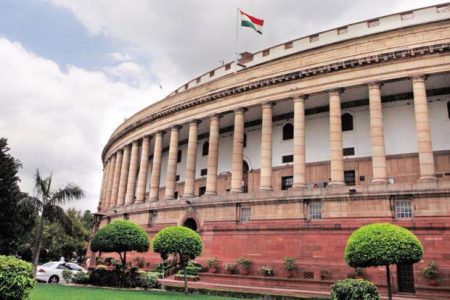The Codes on Wages Bill 2019 – Highlights, Significance 06/07/2019 – Posted in: Daily News – Tags: The Codes on Wages Bill - a comparision
THE CODES ON WAGES BILL 2019
For: Mains
Topics covered: The Codes on Wages Bill, Highlights, and Advisory Board
News Flash
The Union Cabinet has approved The Code on Wages Bill 2019.
- The Code on Wages is one of the four codes that would subsume 44 labour laws with certain amendments.
- The four codes will deal with wages, social security, industrial safety and welfare, and industrial relations.
Background
- The government had introduced The Codes on Wages Bill in the Lok Sabha in 2017.
- The bill was referred to the Parliamentary Standing Committee.
- The committee submitted its report in December 2018.
The Code on Wages Bill
- The bill seeks to subsume existing laws related to workers’ remuneration.
- Bill enables the Centre to fix minimum wages for the entire country.
The Code replaces four existing laws
(i) Payment of Wages Act, 1936
(ii) Minimum Wages Act, 1948
(iii) Payment of Bonus Act, 1965
(iv) Equal Remuneration Act, 1976
- The bill provides that the Central Government will fix minimum wages for certain sectors, including railways and mines.
- The state government would be free to set minimum wages for other categories of employment.
- The code also provides for setting up of a national minimum wage.
- The minimum wage may be set by the central government.
- The state cannot set a minimum wage lower than the national minimum wage.
- The draft law also says that the minimum wage would be revised every five years.
- The overtime rate will be at least twice the normal rate of wages of the employee.
Advisory Boards
The central government and state governments will constitute the Central Advisory Board and State Advisory Boards respectively.
These boards will consist of
(i) employers
(ii) employees in equal number as the employers
(iii) independent persons (not exceeding one-third of the total members of the board).
They will advise the central or state governments on issues such as setting and revision of minimum wages and increasing employment opportunities for women, among others.
Comparison of current wage laws with the proposed Code
| Provision | Current Laws | Code on Wages, 2017 |
| Coverage |
|
|
| Revision of minimum wages | Minimum Wages Act: Minimum wages must be revised by the central or state governments at least once every five years. | Mandates that minimum wages be revised in five-year intervals. |
| National minimum wage | No Provision | The central government may set a national minimum wage and may set different national minimum wages for different states and regions. |
| Overtime Wage | Minimum Wages Act: Allows the relevant central or state governments to set overtime wage. | Sets overtime wage at two times the normal wages. |
| Gender discrimination |
|
|
| Inspections | Minimum Wages Act, Payment of Wages Act, Payment of Bonus Act, and Equal Remuneration Act: Inspectors are appointed to carry out (i) surprise checks, and (ii) examine persons and require them to give information, among other powers. |
|
| Penalties |
|
|
Source: The Hindu Businessline
You can follow us on LinkedIn and for more updates related to UPSC IAS Preparation, Like our Facebook Page and subscribe our Diligent IAS Youtube Channel
Also, Read Related Daily News
- Core Investment Companies
- Artificial Gravity Technology
- New Delhi International Arbitration Centre Bill 2019

